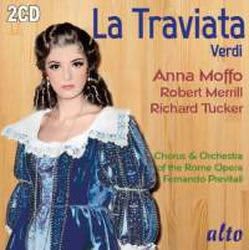Περιγραφή
Καλλιτέχνες
|
idiomatic sympathy of the Swiss conductor Ernest Ansermet for ballet music and specifically the scores commissioned by Serge Diaghilev for the Ballets Russes. The Eloquence label has undertaken a thorough-going re-examination of the recorded legacy of Ernest Ansermet, including reissues of repertoire with which he is no longer associated such as symphonies by Schumann (4800078), Sibelius (48000044) and Prokofiev (4800834). His Beethoven (4800391) has always been admired for its thrilling energy and sure sense of direction; nevertheless, it was on the music of French, and French-accented Russian composers, that his reputation was most securely founded. A 4CD set has already catalogued his first recordings of important works by Stravinsky (4803775) along with his mono recordings of Debussy (4800127) and Ravel (4428321). Now for the first time his later stereo recordings of Diaghilev ballets are brought together on a generously filled 2CD set including the Prélude à l’après-midi d’un faune, Jeux, Daphnis et Chloé, La Valse, a complete Pulcinella and Les Noces (sung in French with a Swiss-French cast). A new booklet appreciation by François Hudry places into context Ansermet’s special understanding and inside knowledge of these scores and the Parisian milieu from which they sprang. Indeed, he had vivid memories of conducting the company on a tour of the US, including 105 performances in 105 days. In 1909, when still a young man, Ansermet wrote that ‘Debussy’s work seems to me the most important musical phenomenon since Wagner and the Russians … His influence is neither to be wished nor feared, it cannot be avoided.’ Together with Ravel and Stravinsky, Debussy was the composer Ansermet conducted most, and he took their music all over the world. La valse in particular became a calling-card: In 1921, after listening to Ansermet conduct the work, Ravel immediately wrote to him: ‘You understand La valse perfectly. I have never been able to obtain such rhythmic suppleness in Paris.’ |









